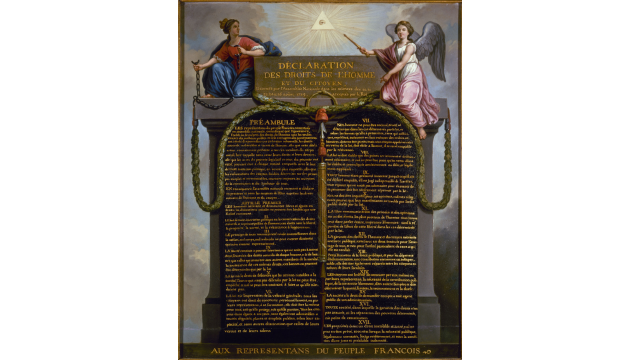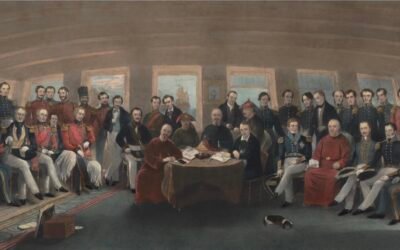Only by solving the Tai Ji Men case will Taiwan prove that it is aligned with the tradition of the international declarations affirming human rights.
by Thierry Valle*
*A paper presented via video at the International Forum on World Citizenship Day 2025 “Transitional Justice Through Effective Relief: The Tai Ji Men Human Right Case,” Taipei, April 1, 2025. See full videos of the morning session and of the afternoon session of the Forum.
![James William Edmund Doyle (1822–1892), “King John [1166–1216] Signing the Magna Carta.” Credits.](https://bitterwinter.org/wp-content/uploads/2025/04/King-John-1166–1216-Signing-the-Magna-Carta.png)
World Citizenship Day is an opportunity to celebrate the historic advances made towards the universal recognition of citizens’ rights, while remembering that this journey is still ongoing. All citizens of this world, regardless of their culture or origin, deserve to be respected in their dignity and fundamental freedoms. But history shows us that these rights have never been guaranteed without a fight, and that they are still being violated, as in the case of Tai Ji Men. Their struggle embodies the example of a modern fight for justice and truth, aligned with the universal principles of human rights.
Citizens’ rights have their origins in antiquity, with the first legal guarantees such as the Code of Hammurabi in Mesopotamia, followed by civil rights in Greek democracy. These early notions were transformed over the centuries, notably with the English Magna Carta (1215), which limited the power of sovereigns for the first time.
However, it was in 1789, with the Declaration of the Rights of Man and of the Citizen in France, that modern law took on a universal dimension. This declaration, inspired by the Enlightenment, asserts that all men are born free and equal, a basis for the defense of the rights of every citizen, regardless of birth or beliefs.
The Declaration of the Rights of Man and of the Citizen marks a crucial stage in the history of humanity by defining the inalienable rights of human beings. This declaration is not only a legal text, but a worldwide symbol of freedom and equality. It has inspired international constitutions and texts, notably the Universal Declaration of Human Rights of 1948.

Article 1 of the Declaration of the Rights of Man and of the Citizen proclaims that “men are born and remain free and equal in rights.” Similarly, Article 7 stipulates that “no man may be accused or detained without valid reason according to the law.” These principles, conceived more than two centuries ago, remain essential pillars for denouncing modern abuses.
In the case of the Tai Ji Men, the Declaration of the Rights of Man and of the Citizen is particularly relevant. This group, persecuted since 1996 by the Taiwanese authorities, suffers violations of the fundamental rights as defined in the Declaration.
Article 7 has been violated by an unjust and excessive use of the judicial system and by abusive taxation, established on corrupt bases.
Article 17, which protects against arbitrary deprivation of property, has also been violated by the nationalization of Tai Ji Men’s sacred land.

The numerous articles and lectures that have been given show how much their case embodies a permanent struggle against a corrupt system, and how much these violations deprive not only Tai Ji Men Shifu (Grand Master) and dizi (disciples) of their rights, but also the Taiwanese nation of fair and democratic representation.
The concept of “transitional justice” is emerging as a key to resolving injustices perpetrated by authoritarian and post-authoritarian regimes when democracy is fully restored. Recommended by various international forums, this mechanism calls on governments to adopt concrete measures to correct past mistakes. In the case of the Tai Ji Men, this would involve:
-A review of previous judgements.
-A reform of the tax system.
-Public recognition of the abuses suffered, in order to restore their honor.
Tai Ji Men dizi are the embodiment of enlightened and committed citizenship, ready to fight for truth and justice. In a true democracy, their struggle should not be ignored, but celebrated as a model of responsible commitment. By recognizing past wrongs against them, Taiwan can demonstrate that it is capable of truly respecting the principles of the Universal Declaration of Human Rights, and thus progress towards a fair future for all its citizens.

Thierry Valle has been an active advocate for human rights for more than two decades. He has lectured extensively concerning freedom of religion and belief around the world. He is the president of CAP Liberté de Conscience, an European NGO with United Nations ECOSOC consultative status, created two decades ago and dedicated to protect freedom of religion or belief.



